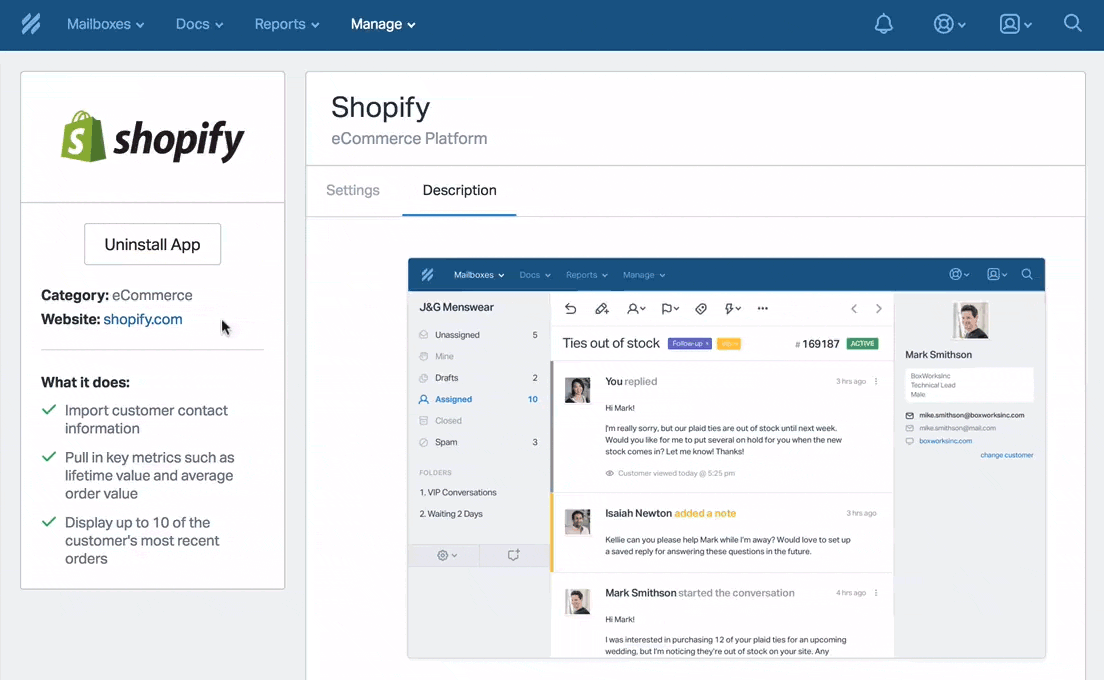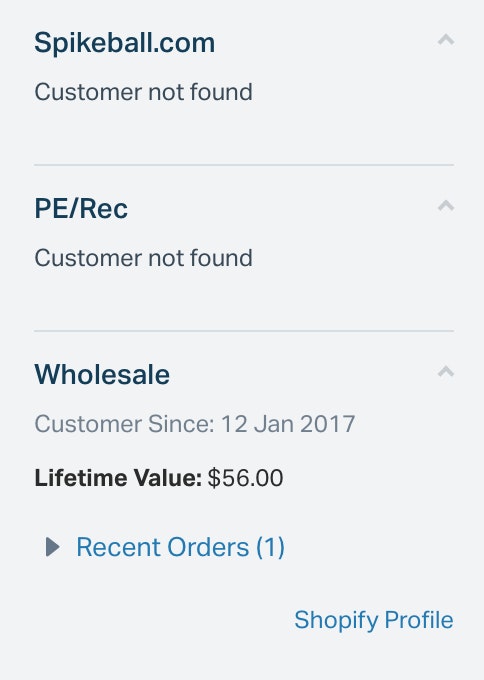Ecommerce Companies Use Multiple Instances to Manage Different Customer Groups


Running multiple shops with different accounts for your customer data used to be a gigantic pain.
If you had a number of online shops for different sets of customers, you either had to switch between (and pay for!) multiple help desk accounts, or make do with the integration only showing customer data for one type of customer.
But now that Help Scout’s integrations with Shopify, Metorik, WooCommerce and others support multiple instances, customers who have more than one presence in these apps can see all of their customer data in Help Scout.

Once you’ve installed the app, you’ll see the option to add additional accounts — log in to your account and hover over to Manage > Apps, and select the respective app.
Here’s how four awesome Help Scout customers are already streamlining their communication by putting this feature to use.
How Hard Graft handles multiple currencies
London-based Hard Graft creates gorgeous leather laptop sleeves, bags, phone cases and more. Because Shopify only supports transactions in a single currency, Hard Graft has one store for U.S. customers in USD, and one store for international customers in Euros.

“Through Help Scout we can help customers from both stores and have a snapshot of all orders, regardless of which store the customer purchased from,” says Cofounder James Teal. “The instant overview to a customer’s order history is really helpful, and one-click access to an order in our Shopify admin means order-specific customer service is very smooth.”
How Laboratory Supply Network keeps customers’ stories straight
Rather than host one big store, Laboratory Supply Network has a network of Shopify storefronts focusing on the different sets of tools scientists need to do their work. This model allows them to simplify purchasing decisions for their customers, which leads to higher customer satisfaction. It also means they have a “large and ever-growing number of stores and an equally large number of repositories for customer data,” says head of marketing Carlton Hoyt.
“We previously were relying on our staff to know who purchased what and when, which is an extremely imperfect system. It’s impossible to keep up with all our leads and to recognize who is ordering what when an order comes in. In turn, this would lead to embarrassing and not particularly professional moments when we would do a sales follow-up with a customer who already made a purchase. We couldn’t realistically scour each store for a purchase before following up with a customer; it would kill our sales productivity.
“With Help Scout’s Shopify integration, which pulls order data from all of our Shopify stores, we see the purchasing history for a given customer right next to any messages with that customer. It took all of three minutes to set up in our seven stores, and it’s a huge help to us.”
How Spikeball maintains a personalized experience for different kinds of customers
Spikeball hosts five Shopify stores that customize the shopping experience for different types of customers — they have various pricing and product bundles for retail and wholesale customers versus online shoppers, for instance.

Spikeball’s “Road to Victory” Kit
Before Spikeball’s Shopify stores were connected, their support team could only see order history for orders placed through Spikeball.com. “So if a customer who purchased on the retail portal emailed support, we would not be able to see their order history from the retail portal without looking it up in external systems,” says Customer Engagement Manager Hadas Look.
Now that Help Scout supports multiple Shopify instances, the Spikeball team can see every customer’s complete story within Help Scout. “This make servicing our customers easier, faster, and more efficient!” Look says.

A Spikeball retail customer’s Shopify order history in the Help Scout sidebar. “If it weren’t for the multi-instance feature,” Look says, “Help Scout would have shown us that this customer had no order history.”
How Sauceda Industries plows through ecommerce conversations
Sauceda Industries is a third-party logistics company that handles shipping and order fulfillment for more than 30 small-but-growing ecommerce clients.

Sauceda Industries team members in the warehouse
“The ability to link each specific Shopify database to their individual inboxes allows our team to quickly look into customer purchase history, track down specific orders, and speed along the ticket closing process through faster decision making,” says owner Jay Sauceda. “Having direct access to specific client Shopify dashboards allows our team to dive right into the order they need to manage immediately, instead of having to open a tab, find the store bookmark, log in, and then search for the orders.”
An ecommerce game changer
Not everyone who uses Help Scout also uses or needs to pull multiple instances of the other apps they use into their account. But for those who do, the multi-instance feature is a game changer: You can manage all of your customers from a single account, and see everything you need to see about every customer's history right there in the sidebar.
Ready to set up multiple instances in your Help Scout account? Here’s how to do it with:
Pipedrive and InfusionSoft integrations now support multiple instances as well.
